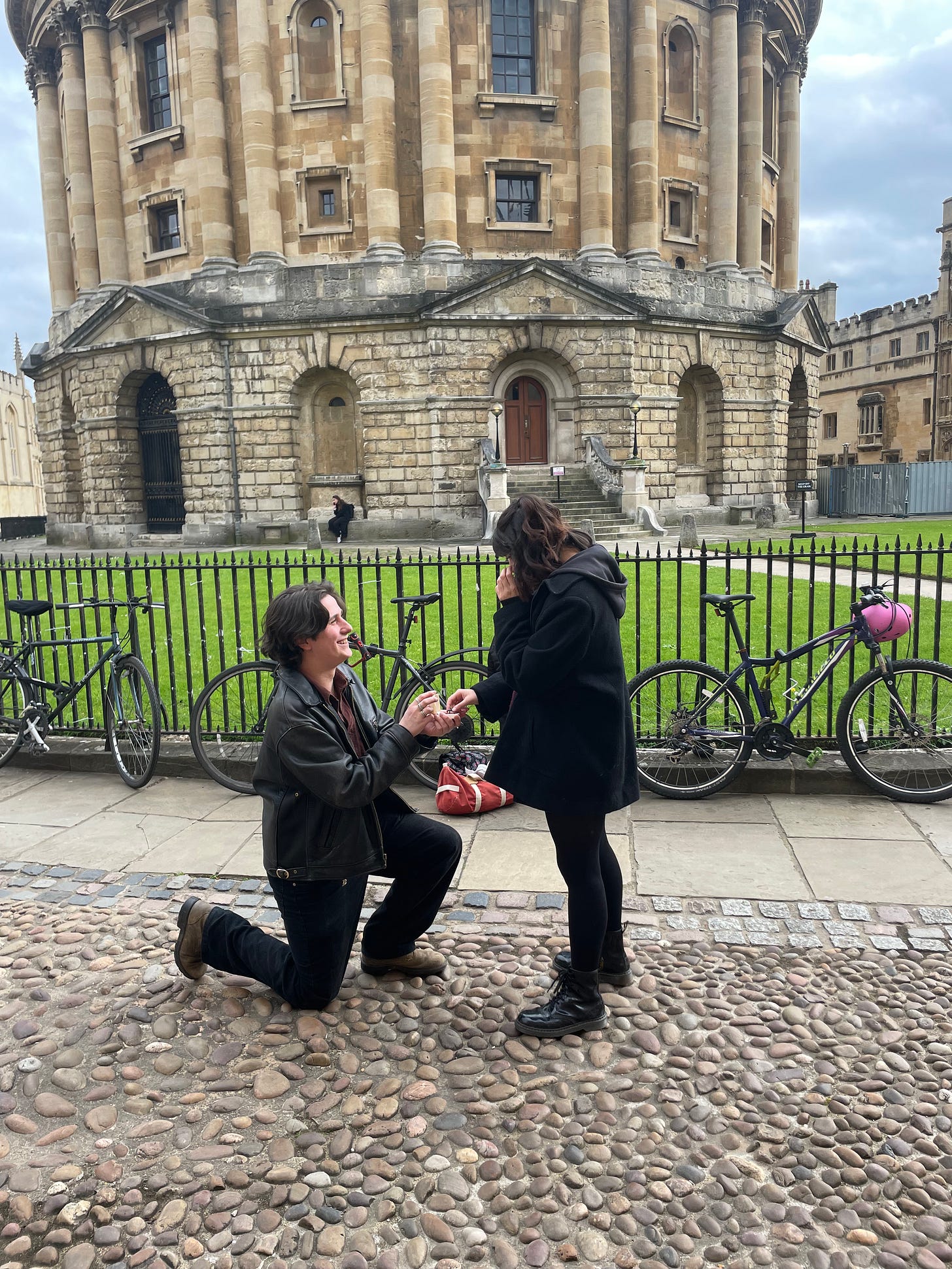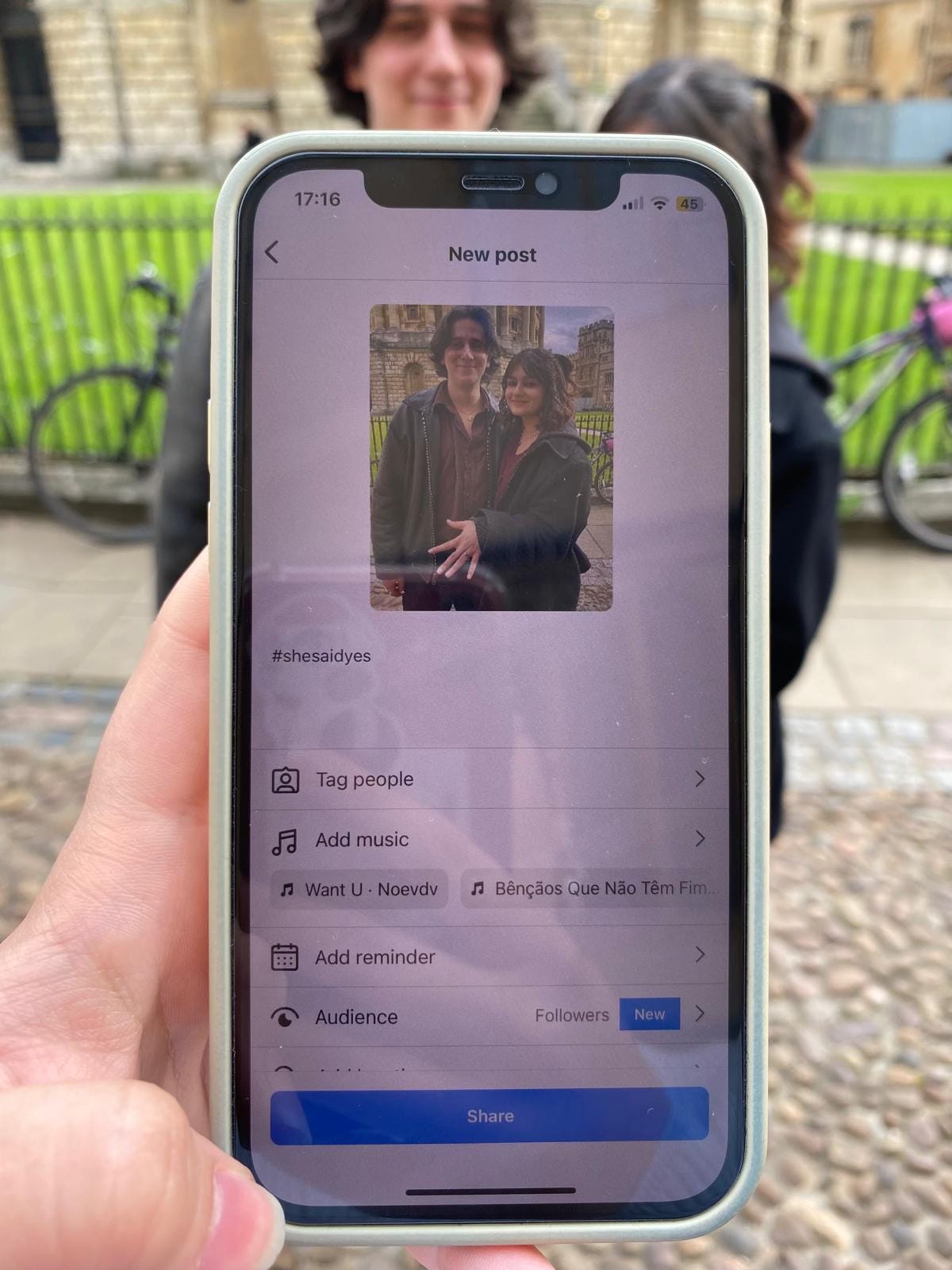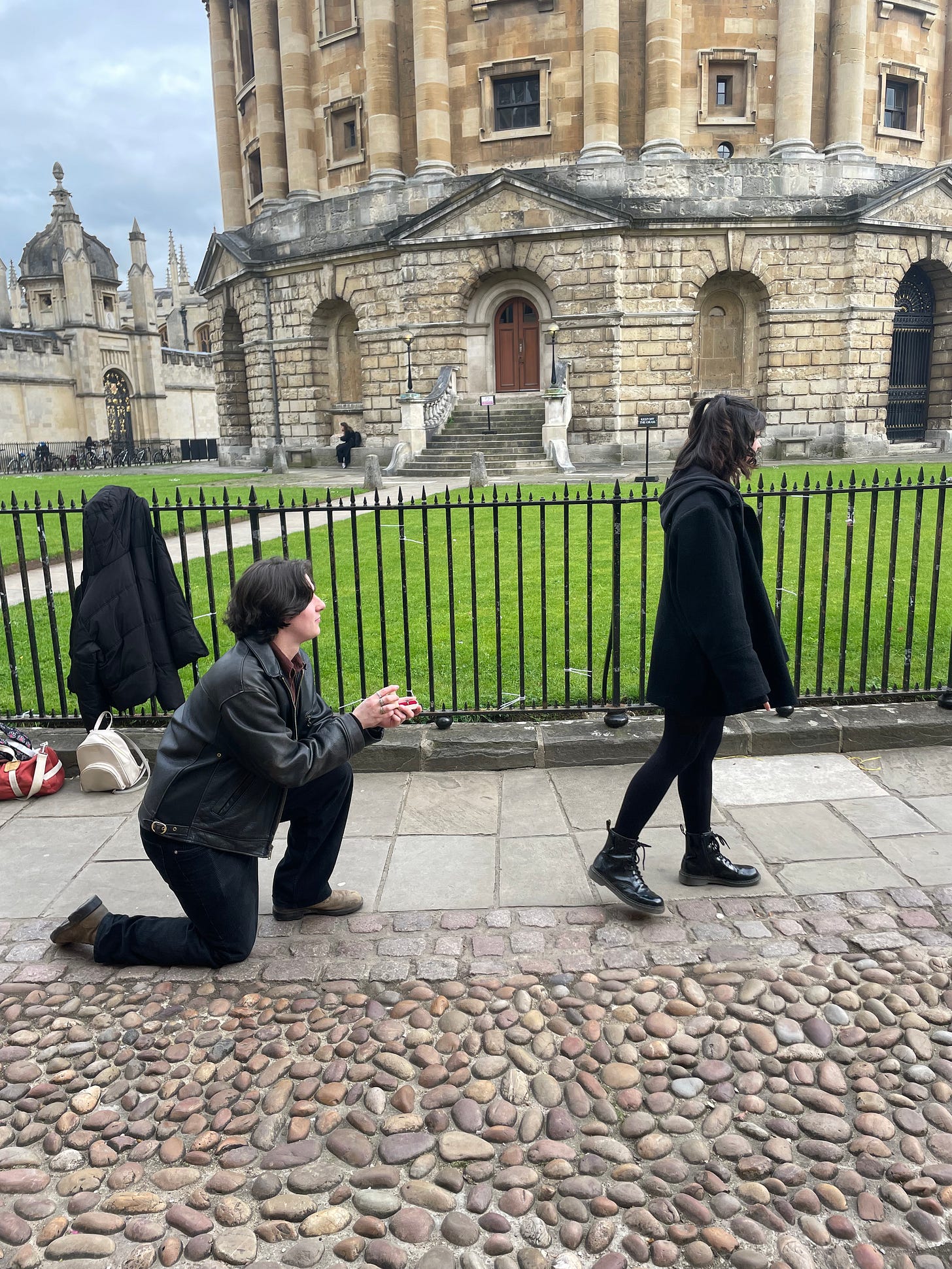'Will you marry me…publicly?’
Some feel that a public proposal and a '#shesaidyes' post is all they ever want, while others cringe at the mere thought of it. But what happens when it turns out to be what you dreaded the most?
You and your partner are walking around the Eiffel Tower - ‘la crème de la crème’ when it comes to public marriage proposals - suddenly they’re on their knee, take a box out - is that a ring?! And they ask you: “will you marry me?” Emotions go array, the crowd goes wild, camera flashes all around you. You open your mouth and you say….
Some people when faced with a public marriage proposal might go “that’s awful” or “that’s cringe,” and others might find it interesting and even look at it as their “dream come true”. As psychologist and relationship expert Dr Mark Burgess suggests “when we look at these things, we place ourselves in those positions and think ‘would I enjoy this?’ and ‘does it seem appropriate to me?’”
‘Let’s talk marriage proposal’
During my conversation with Dr Burgess he introduced me to the concept of “mentalization,” which means understanding the mind of the other. Now, how can you be sure you have mentalized? Ask yourself “do I know what the inner world and the love map of my partner is?” or “would my partner be horrified at having a public proposal?” If you don't know the answers, you don’t know your partner as well as you ought to. But please do not panic, use this as an opportunity to try and learn.
How can you do that, you might wonder. Well, by talking with your partner about it, so you can propose or be proposed to “in a way that both would be happy with,” as one of the respondents to my Vox Pop on the subject suggested.
If you are at the proposing stage that means that you want to continue the relationship, and what better way to do it than by showing that you care about what they want. Isn’t that such a good start to the marriage?
‘They’re going to love it I’m sure’
Sadly, not all couples take a step towards understanding their partner’s mind better and often just ignore it. And it is in those moments that you should start wondering “is this the right relationship for me?”
When your partner doesn’t understand who you are and what you want, Dr Burgess says that it is natural to start thinking that “maybe this person doesn’t know me as well as I thought they did”. If your partner dismisses your concerns as you ‘being silly’ and that you will absolutely love it, doesn’t that somehow give “a little bit of a green flag for dismissing future concerns?” Dr Burgess points out.
If you are ever in a similar situation, put your feet down and call your relationship for what it is: a red flag. And what do we do with red flags? We run, that’s what we do.
‘#shesaidyes, and post!’
If you’re like me and spend sometimes hours scrolling through social media you have surely come across a ‘#shesaidyes’ post - smiling faces, heart-filled eyes and a ring as proof of engagement.
Out of curiosity I looked up the ‘#shesaidyes’ on instagram and found that there were - gasp - 6.4M posts online. Dr Burgess explains that as a social media generation it feels inevitable to announce it online, and that is totally normal - and extremely swoonworthy for many - as the act of sharing on social media is often to seek connection and safekeep memories.
There are also those from the Vox Pop who said they prefer to keep their proposals private, as they wouldn’t want it to become a public moment for other people to see - isn’t this just so sweet as well?
Which team are you?
‘Not meaning to pressure you, but…’
Now being someone who would absolutely loathe being proposed to in public or even worse posting it online - I could never - it made me wonder about the pressure that some might feel.
One of the respondents to my Vox Pop said that they feel like “there’s always pressure on women saying yes” and Dr Burgess also confirms there is a pressure “if it is not wanted on the woman’s part.” Rejected proposals are often booed at and the one who rejected is often made into the villain by those witnessing it - honestly who would want to go through that if they didn’t even ask for it?
Another respondent to the Vox Pop interestingly commented on the pressure that men who are proposing also feel, as patriarchy kind of forces them to “impress her” and “show his stance” - you don’t want to risk being rejected after all. Research in the Journal of Family Psychology showed that some proposals were rejected because the man didn’t get on his knee or have a ring - yes, you read that right, if you are thinking about proposing you’d better bend the knee and have that ring ready.
‘Say yes, you are being watched!’
Research in the Journal of Family Psychology has shown that perhaps anticipating a negative reaction towards the woman who says ‘no’, some men may orchestrate a public proposal just to pressure their partner into saying ‘yes’ - like WHAT?
When the proposal is made in public there is an expectation that the answer is going to be yes - whether it was talked and discussed with the partner or not - otherwise why would you even put yourself through the embarrassment of risking rejection? But to use the public setting to force an acceptance? - my brain is completely blown. Be careful who you say yes to.
Now, what have we learnt?
Dear readers, I want to invite you to sit your partner down and go ‘oh yeah, if you’re thinking of proposing to me in public, you’re dead’ or how you want the proposal to the minute detail - because let’s be honest men most often are unable to understand cues. And if you ever get your desires dismissed, well do not be afraid of saying ‘no’ when that’s how you really feel - the crowd can go and marry him instead.





